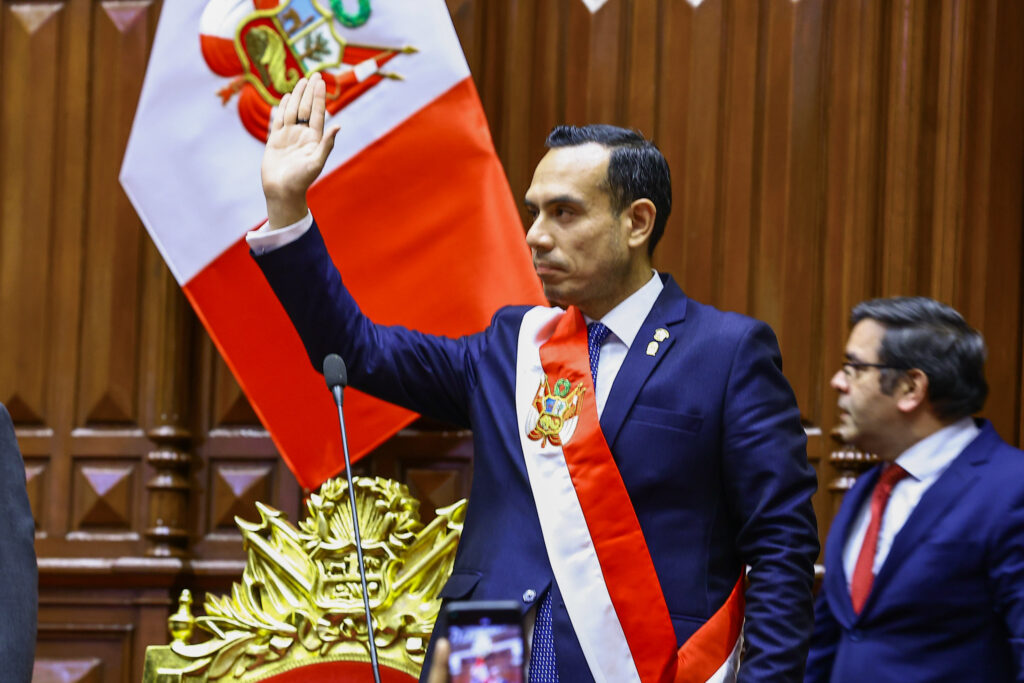The United States and Argentina: A Relationship of Bailouts, Affinities, and Challenges That Is Being Redefined
The new financial bailout that the United States granted to Javier Milei’s government marks another chapter in a history that, although often presented as exceptional, has deep roots in Argentine politics and economics. What appears to be a temporary gesture, aid from the Trump administration in the face of a shortage of foreign currency and the risk of a new financial collapse, is, in fact, part of more than a century of relations in which Washington influenced Argentina’s destiny.
Throughout modern Argentine history, each rapprochement with the United States has coincided with moments of crisis or redefinition of the economic model. And almost always, financial support was accompanied by political, ideological, or diplomatic demands. The current alignment between Milei and Trump, which symbolically sealed their brief but strategic meeting in Washington, is no exception to this logic. What’s changing is the global context: there is no longer a single hegemonic power, but a fragmented world where pragmatism becomes more necessary than ever.
From Carnal Relations to the New Global Right
The phrase immortalized by former Argentine Foreign Minister Guido Di Tella in 1991: “We don’t want to have platonic relations with the United States: we want carnal and abject relations,” summed up the spirit of the 1990s like few others. With Carlos Menem in power and Bill Clinton in the White House, Argentina sought its place in the new unipolar order following the end of the Soviet Union. The result was a total alignment with Washington: participation in peacekeeping missions, economic openness, privatizations, and a massive influx of foreign capital, driven by the enthusiasm of the markets and the support of the IMF.
Three decades later, and amidst the collapse of the Washington Consensus, which was evident in the crisis of December 2001, Javier Milei seems determined to rekindle that political and financial romance. His affinity with Donald Trump transcends protocol: both embody the narrative of the “new global right,” which (with differences) blends anti-establishment rhetoric, economic ultra-liberalism, and nationalist rhetoric. Within this framework, Argentina is once again betting on a privileged relationship with the United States, hoping that American support will revive international confidence and stabilize the economy.
However, the scenario is radically different. In the 1990s, the United States was the undisputed power. Today, it faces a relative decline in its hegemony, while China and other regional powers challenge its economic and commercial influence. Therefore, absolute alignment with Washington could be costly for a country whose export structure depends heavily on Asia and Mercosur.
A History of Bailouts and Conditionalities
According to a survey conducted by Infobae, the US Treasury has provided Argentina with at least a dozen financial assistance programs since the mid-20th century, including lines of credit, guarantees, and indirect support through the IMF. These bailouts are a historical pattern: Washington typically intervenes to support allied governments or prevent political destabilization that could jeopardize its interests in the region.
During the dictatorship of the 1970s, US financial aid was combined with military and diplomatic cooperation; in the 1990s, with Convertibility and access to international markets; and in the early 2000s, with intermediation in debt restructurings. Support for Milei, which seeks to contain the currency crisis and avoid a new default, is part of that same tradition, albeit under a more ideological than strategic narrative.
For Milei, Washington’s gesture has a double value. On the one hand, it offers economic relief at the most delicate moment of his administration. On the other hand, he is trying to gain international legitimacy among the Argentine electorate. The United States, as in other stages of the South American country’s history, has made no secret of its preference: various diplomatic spokespersons and sympathetic media outlets have hinted at their support for continuing the libertarian reform program, considering it a guarantee of regional stability.
The Power of Gestures and the Interests Behind Them
The meeting between Trump and Milei was brief, almost improvised, but its symbolic value was significant. Both countries sealed a political alliance that goes beyond the bilateral. Around this bond, networks of advisors and lobbyists emerged, facilitating dialogue between the two governments and between business groups interested in taking advantage of the new climate of openness. It is an informal ecosystem, where politics and business blend, that has historically accompanied every rapprochement between Buenos Aires and Washington.
Beyond the intermediaries, the central motivation for this rapprochement is economic. With scarce reserves, persistent inflation, and a fiscal adjustment program underway, the Milei administration needs to regain credibility. US support, whether through Treasury guarantees or negotiations with the IMF, serves as a signal to the markets: Argentina is once again “under the umbrella” of the United States.
The Mirror of the 1990s and a Different World
But the global context imposes limits. Unlike the Menem administration, Milei faces an economy much more dependent on China, which is now Argentina’s second-largest trading partner and the main buyer of its agro-industrial production. Furthermore, Mercosur remains a pillar of foreign trade, with Brazil at the forefront. The current ideological alignment with Washington strains these relations and calls into question the viability of a foreign policy based solely on personal affinities.
As several analysts cited by El País point out, the “revival” of carnal relations has less basis in economic reality than in political narrative. Milei himself has had to moderate his stance in the face of evidence that a break with China or Mercosur would be devastating for Argentine exports. Even so, his discourse maintains a confrontational tone: his objective is to show that Argentina is on the side of the “free world” and that this alignment will bring investment, credit, and growth.
Market Impact and the Resurgence of IPOs
The reestablishment of ties with the United States has raised expectations in the financial markets. Several Argentine companies are considering going public in the coming months, taking advantage of the decline in country risk and the renewed interest from US funds. The return of initial public offerings (IPOs) is interpreted as a sign of confidence in the recovery of the local market and a signal that foreign capital is once again looking to the country.
This process can be seen as a direct benefit of Washington’s political and financial support. Companies with export or technological potential are seeking international financing and understand that macroeconomic stability, although still fragile, improves with US support. However, the underlying dilemma also persists: can Argentina sustain growth based on foreign investment without falling back into cycles of dependency?
Between opportunity and conditions
Bilateral history shows that rapprochements with the United States have produced both progress and setbacks. They have opened doors to modernization, investment, and credit, but they have also conditioned economic autonomy and sovereign decisions. The challenge of this new phase will be to transform US support into a platform for development and not a new chapter of structural dependency.
For international investors, Argentina today offers an attractive paradox: a government determined to implement liberal reforms, explicit support from Washington, and a market with undervalued assets that promise high returns. But, as always, success will depend on the country’s ability to transform political gestures into sustainable economic results.
In light of history, the latest US bailout is not a departure, but rather déjà vu. The United States and Argentina find themselves once again, as so often, at the intersection of necessity and opportunity. What has changed, and what can make the difference this time, is the world around us: more multipolar, more competitive, and less willing to forgive past mistakes.





